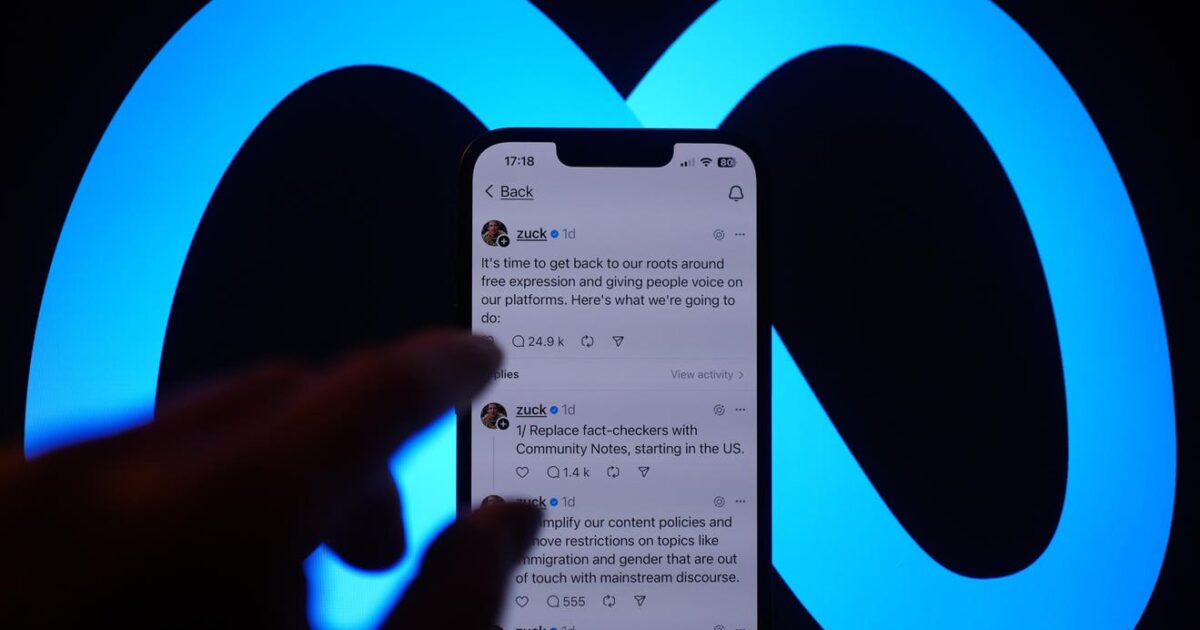Just The Facts – Are Community Notes Working On Social Media?

Meta scraped its longstanding fact-checking programme in favour of a community notes system similar … More
In January, Facebook parent Meta removed third-party fact-checkers and instead adopted a Community Notes format that would allow users to police the platform. Facebook founder Mark Zuckerberg suggested at the time that the fact checkers had become too politically biased, and that resulted in a lack of trust.
Now two months later, the question to ask is whether things are actually better. It has been more than two years since Elon Musk ditched fact-checkers, and there is a case to be made that it is working – at least as promised.
“X’s Community Notes are generally effective because it has a large number of volunteers and uses a method that emphasizes diverse opinions toward helpfulness rather than merely the majority rule. This approach helps reduce bias and potential manipulation, although some limitations still exist,” explained Dr. Siyan Li, assistant professor in the Department of Mass Media at Southeast Missouri State University.
However, technology industry analyst and social media pundit Susan Schreiner of C4 Trends says that without professional fact checkers, the platforms have lost an important guardrail.
“Community Notes has been partially effective, but when issues are politically contentious, the system becomes paralyzed and weak,” Schreiner warned. “Many of the most cited factual sources that underpin Community Notes are currently facing relentless attacks aimed at undermining them due to the prevailing political climate influenced by Elon Musk and the Trump administration.”
This also comes as the administration has taken seemingly drastic steps to eliminate government websites and related pools of reliable sources.
Confronting Misinformation
Supporters of Community Notes argue it has less bias from a handful of individuals who could be the gatekeepers of information, but already there is a danger that Community Notes crowd-sourced fact-checking systems are not stopping the spread of misinformation.
“Instead, it simplifies life for tech executives by letting them outsource responsibility for what happens on their platforms, thus evading intense scrutiny over misinformation and censorship from both the right and left,” Schreiner continued.
Moreover, many community notes on X – and increasing on Meta – may fail to gain visibility as users increasingly struggle to reach a consensus or fail to recognize nuance. A significant number of published notes have also been retracted later. Facts shouldn’t be so fluid, but that is exactly what seems to be happening on social media.
“Even notes initially rated as ‘helpful’ and published are removed 26% of the time once disagreement arises, according to another analysis,” said Schreiner.
“Community notes might serve as a heuristic cue that increases trust in misinformation when it has not yet been labeled,” added Li. “Specifically, as users become accustomed to the Community Notes feature, they might assume that a post containing misinformation is true simply because it has not been labeled.”
That could align with the implied truth effect, which suggests that when people know false information is typically labeled, they may assume unlabeled content is true, Li noted.
“Due to the delay of the Community Notes, the absence of a label for some misinformation could act as a heuristic cue, leading users to believe the information is accurate. More research is needed to determine whether this effect occurs and how influential it may be,” Li further emphasized.
A More Literal User?
It is also possible that user media literacy may evolve as misinformation becomes more prevalent, simply because facts still have a way of filtering through. This has been seen time and time again with the misinformation spread about Ukrainian President Volodymyr Zelensky.
Yet, Community Notes could have their problems – with verifiable facts labeled as false.
“This does not necessarily mean they will lose trust in or blindly accept everything labeled by Community Notes, ” said Li. “Instead, users might develop a more skeptical approach to all content on social media, maintaining a sense of uncertainty that prompts them to seek additional confirmation or avoid taking any information at face value. And the information effects might become more complicated to interpret or predict.”
Meta Take Notice Of Community Notes
The question is whether Meta will generate the same enthusiasm among Community Notes users as is routinely seen on X, but it is important to note that Musk has continually touted his “free speech” agenda.
There are several questions to ask, suggested Schreiner.
“Will Meta’s open-source algorithm, which claims to determine whether a note provides valuable context, be sufficient? Can Community Notes, serving as a fact-checking tool without any enforcement mechanism, truly replace the content moderation that Meta enforced through its community standards,” Schreiner pondered. “Is this change enough to reduce the spread of misinformation on their platforms without eliminating the incentives that encourage disinformation – instead of hiding behind the crowd?”
